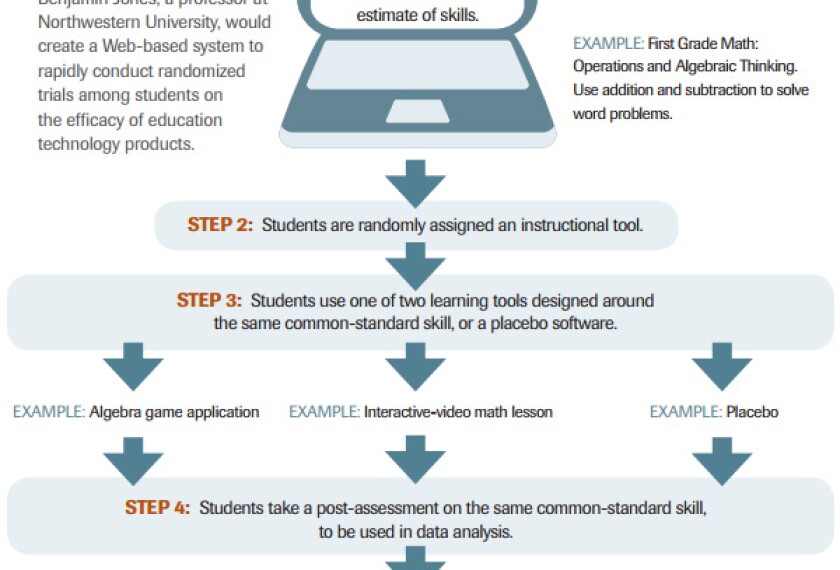February 6, 2013
Digital Directions, Vol. 06, Issue 02
School & District Management
Ed-Tech Leaders Face a Critical Moment in Time
The education marketplace is growing increasingly complex at the same time that schools are preparing for the technological demands of common-core standards.
Classroom Technology
Virtual Courses Feature Gaming to Raise Interactivity
Creators of online courses are finding new ways to incorporate interactive, game-based learning in online curriculum.
Reading & Literacy
Tablets, Smartphones Influence Reading Instruction
The number of games, apps, and software to help students learn to read and increase their literacy skills is growing fast, and the tools themselves are becoming more interactive and animated.
Classroom Technology
Schools Set Boundaries for Use of Students' Digital Devices
Crafting smart policies that outline privileges and restrictions will help keep schools on track for responsible yet dynamic use of student-owned tech tools.
College & Workforce Readiness
Multimedia Journalism Programs Emphasize Real-World Skills
Students are learning how to research and write scripts, hone interviewing techniques, and edit video footage, and some teenagers are even earning certifications in media technology.
Federal
Data-Mining Faces New Privacy Rules
The new policies aim to close loopholes that the Federal Trade Commission says too often allow websites and online services to gather personal information improperly from students.
Classroom Technology
Companies Aim to Leverage Open-Source Opportunities
But some companies are using the term "open" very loosely in the promotion of certain products to capitalize on the popularity of the concept.
IT Infrastructure & Management
Districts Move to the Cloud to Power Up, Save Money
Cloud-computing programs run the gamut in terms of services, offering everything from math tutorials and virtual science labs to classroom management and administrative tools.
Curriculum
'Big Three' Publishers Rethink K-12 Strategies
The shift to more digital offerings is occurring as districts in nearly every state are considering their textbook needs in light of the Common Core State Standards.
School & District Management
State, Federal Ed-Tech Leadership Seen as Key to Innovation
State and federal policymakers have the power to highlight successful initiatives and change outdated policies to improve the use of technology in schools.
School & District Management
The New Ed-Tech Leader Models by Digital Example
Superintendents and chief technology officers are modeling their commitment to use technology to improve schools by blogging and tweeting regularly about what works and what doesn't work.
Teaching
Project Envisions Teaching Fractions by Touch, Movement
A federally funded project will test students' ability to learn fractions on mobile apps through "embodied cognition," essentially moving images and information on screens with their fingers.
Teaching
Middle Schoolers Turning on Smartphones
A recent survey found that 39 percent of middle school students are using their smartphones to complete after-school assignments.
Standards & Accountability
Common-Core Tech Requirements Outlined
Two groups developing specifications for common-core online testing have released guidelines showing what technologies schools will need.
Federal
Karen Cator To Step Down as U.S. Ed-Tech Chief
The former Apple Inc. executive is a vocal advocate for schools to use technology more effectively to personalize learning.
IT Infrastructure & Management
Digital Media's Impact Is Uneven, Teachers Say
Educators say digital tools used both inside the classroom and outside it in students' personal lives are having positive and negative effects on academic and social development.
Standards & Accountability
New Tools Seek to Evaluate Ed-Tech Products
A number of services have cropped up over the years to help schools answer the question: What works?










